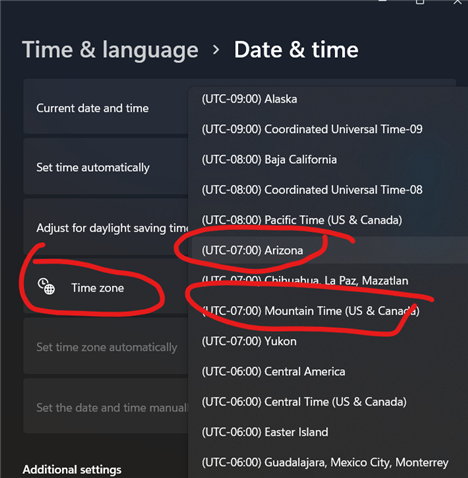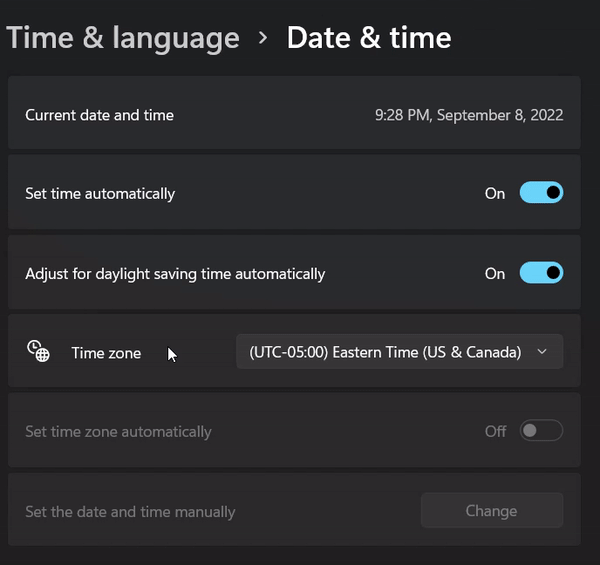Hello,
What's the best way to handle a long list in settings?
I am making a watch face where the user can select a time zone or Zulu offset. There are over 30 different time zones around the globe and I'd rather not do a super long list. Mainly because I'd have to create over 30 items in the list, then re-create this in strings. Any thoughts?
I've considered doing 5 different number entries (1st for plus or minus, 2nd & 3rd for hours, 4th and 5th for minutes), but I have no say in the formatting of the settings page (other than <group>) to make it look obvious.
I tried asking for the hours separate from the minutes (constrained with min-max), but i don't think it was clear what I was looking for.
I could ask for the time zone as a string and then reference a database, but then I'd have to create and maintain a database of currently 117 time zones (https://www.worlddata.info/timezones/index.php).
Thoughts?




